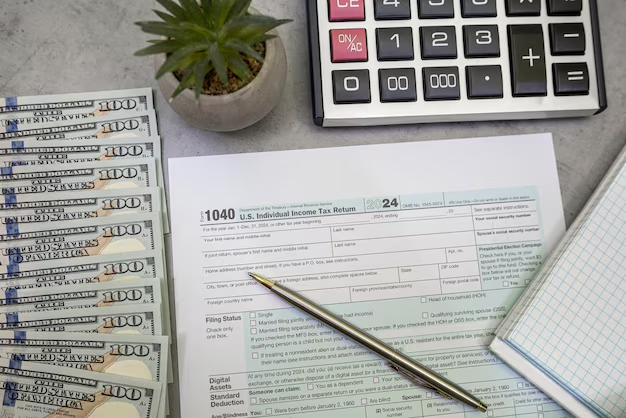Understanding State Tax in South Carolina: What You Need to Know
If you're considering a move to South Carolina or simply curious about the state's tax laws, you're in the right place. Taxes are a significant aspect of financial planning, and knowing what to expect in South Carolina can help you make informed decisions. So, does South Carolina have state tax? Yes, it does. However, let's dive deeper into what that means for residents and visitors.
The Basics of South Carolina State Tax
South Carolina imposes several types of taxes on its residents and businesses, the most prominent being income tax, sales tax, and property tax. Understanding each of these can provide a clearer picture of the overall tax landscape in the state.
Income Tax in South Carolina
South Carolina levies a state income tax on all residents. The income tax rate is graduated, meaning it increases with the level of taxable income. As of now, the state’s income tax rates range from 0% to a top rate of 7%.
Income Tax Rates
- 0% for income up to a specified threshold.
- 3% to 7%: Rates increase progressively based on income brackets.
Residents need to file a SC1040, the state's income tax return form, annually. It's crucial to keep track of these brackets and allowable deductions to minimize the taxable income effectively.
Sales Tax in South Carolina
Sales tax is another significant source of revenue for the state. The base sales tax rate in South Carolina is 6%. However, counties can add additional sales tax, leading to a total sales tax that can reach as high as 9%.
What Items Are Taxed?
- General retail goods
- Certain services
- Prepared foods
It's worth noting that some essential items, including unprepared foods like groceries, are exempt from state sales tax. This exemption can provide significant savings for residents.
Property Tax
Property tax in South Carolina is notably lower compared to national averages, which makes it an attractive state for homeowners. The rate is determined at the local level, meaning it can vary quite significantly from one area to another.
Property Tax Assessment
- Based on the fair market value of the property.
- Millage rates are applied by local governments.
Because of the varying millage rates, it's essential to research specific areas within the state to understand potential property tax liabilities fully.
Additional Taxes in South Carolina
Beyond these primary taxes, several other lesser-known taxes might apply, depending on your circumstances.
Vehicle Tax
South Carolina charges a property tax on personal vehicles. This tax is due annually and is based on the vehicle's value, age, and classification. It's an essential consideration for anyone planning to buy or register a car in the state.
Gasoline Tax
If you're regularly on the road, you'll want to consider South Carolina's gasoline tax. This tax helps fund road maintenance and infrastructure improvement projects.
Accommodations Tax
Planning a vacation in South Carolina? Visitors should be aware of the accommodations tax, which applies to hotel stays, vacation rentals, and other short-term lodging. This tax is an additional charge on top of the standard sales tax.
How South Carolina's Tax Structure Compares Nationally
Understanding how South Carolina's tax structure stacks up against other states is crucial for both current and prospective residents.
Competitive Income Tax Environment
South Carolina's state income tax, while progressive, remains relatively competitive. The top marginal rate of 7% is comparable to many states with similar structures.
Affordable Property Tax
The state's low property tax rates offer substantial relief to homeowners and can be a decisive factor when choosing to buy property.
Impact of Sales Tax
South Carolina's sales tax can be higher than some neighboring states, particularly when local option taxes are considered. It's vital for consumers to be aware of these differences.
Strategies for Minimizing Your Tax Liability
Being proactive about understanding and planning for South Carolina’s tax structure can lead to significant savings.
Maximize Deductions and Credits
Key Tax Deductions:
- Charitable contributions
- Mortgage interest
- Educational expenses
Popular Tax Credits:
- Child care credits
- Earned income tax credit
Timing of Purchases
Consider purchasing large items when you're in areas with lower local option sales taxes or look for specific tax holidays offered by the state to make significant purchases.
Residency Planning
If you are relocating to South Carolina, consider your timing and the potential tax implications of partial-year residency.
Practical Takeaways: Managing Taxes in South Carolina
Here's a quick summary of tips and takeaways to help navigate South Carolina's tax environment:
- 📌 Know the Rates: Be aware of income, sales, and property tax rates.
- 📝 Stay Organized: Keep detailed receipts and documentation for deductions.
- 🛍️ Plan Purchases: Consider timing to optimize tax holiday savings.
- 🚗 Vehicle Considerations: Budget for annual vehicle property taxes.
- 🏡 Property Tax Awareness: Research local millage rates before buying a home.
- 🌟 Leverage Exemptions: Utilize available exemptions for essentials like groceries.
Embracing the South Carolina Lifestyle
Taxes are just one piece of the puzzle when it comes to the cost of living in South Carolina. The state offers a wealth of cultural, historical, and recreational opportunities that enhance its appeal as a great place to live and work. By understanding and managing your tax responsibilities, you can enjoy all that the Palmetto State has to offer while maintaining financial health and stability.
Each financial situation is unique, and it's always recommended to consult with a tax professional for advice tailored to your specific circumstances. With this foundational understanding, you're well-equipped to explore and enjoy life in South Carolina with confidence.

Related Topics
- Am I Tax Exempt
- Are 401k Contributions Tax Deductible
- Are 529 Plan Contributions Tax Deductible
- Are Attorney Fees Tax Deductible
- Are Campaign Contributions Tax Deductible
- Are Charitable Donations Tax Deductible
- Are Church Donations Tax Deductible
- Are Churches Tax Exempt
- Are Closing Costs Tax Deductible
- Are Contributions To 529 Plans Tax Deductible
